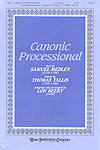- |
User Links
The Love of God Shed Abroad in the Heart

Come, dearest Lord, descend and dwell
Author: Isaac Watts (1709)Communion Songs
Published in 281 hymnals
Printable scores: PDF, MusicXMLAudio files: MIDI
Representative Text
1 Come, dearest Lord, descend and dwell
by faith and love in every breast;
then shall we know and taste and feel
the joys that cannot be expressed.
2 Come, fill our hearts with inward strength,
make our enlargèd souls possess
and learn the height and breadth and length
of thine immeasurable grace.
3 Now to the God whose power can do
more than our thoughts or wishes know,
be everlasting honours done
by all the church, through Christ his Son.
Source: Ancient and Modern: hymns and songs for refreshing worship #438
Author: Isaac Watts
 Isaac Watts was the son of a schoolmaster, and was born in Southampton, July 17, 1674. He is said to have shown remarkable precocity in childhood, beginning the study of Latin, in his fourth year, and writing respectable verses at the age of seven. At the age of sixteen, he went to London to study in the Academy of the Rev. Thomas Rowe, an Independent minister. In 1698, he became assistant minister of the Independent Church, Berry St., London. In 1702, he became pastor. In 1712, he accepted an invitation to visit Sir Thomas Abney, at his residence of Abney Park, and at Sir Thomas' pressing request, made it his home for the remainder of his life. It was a residence most favourable for his health, and for the prosecution of his literary… Go to person page >
Isaac Watts was the son of a schoolmaster, and was born in Southampton, July 17, 1674. He is said to have shown remarkable precocity in childhood, beginning the study of Latin, in his fourth year, and writing respectable verses at the age of seven. At the age of sixteen, he went to London to study in the Academy of the Rev. Thomas Rowe, an Independent minister. In 1698, he became assistant minister of the Independent Church, Berry St., London. In 1702, he became pastor. In 1712, he accepted an invitation to visit Sir Thomas Abney, at his residence of Abney Park, and at Sir Thomas' pressing request, made it his home for the remainder of his life. It was a residence most favourable for his health, and for the prosecution of his literary… Go to person page >Text Information
| First Line: | Come, dearest Lord, descend and dwell |
| Title: | The Love of God Shed Abroad in the Heart |
| Author: | Isaac Watts (1709) |
| Meter: | 8.8.8.8 |
| Language: | English |
| Notes: | French translation: "Dieu bienaimé, descends des cieux" by Eva Kushner; German translation: "Der du allreich, allherrlich bist" by Johann Christoph Hampe |
| Copyright: | Public Domain |
| Liturgical Use: | Communion Songs |
English
- A Baptist Hymn Book, Designed Especially for the Regular Baptist Church and All Lovers of Truth #d124
- A Choice Selection of Psalms, Hymns and Spiritual Songs for the use of Christians #413
- A Collection of Psalms, Hymns, and Spiritual Songs: with the music of Mason's Sacred Harp and Missouri Harmony adapted #27
- A Manual of Devotion for Soldiers and Sailors: comprising I. forms of prayer, public and private, II. a compend of Bible truth, III. The Assembly's shorter catechism, IV. A selection of psalms and... #12
- A New Selection of Psalms and Hymns from the Most Approved Authors, Adapted to Public and Private Worship. 2nd ed. #d86
- A New Selection of Psalms, Hymns and Spiritual Songs: from the best authors; designed for the use of conference meetings, private circles, and congregations (21st ed. with an appendix) #281
- A Pastor's Selection of Hymns and Tunes: for Worship in the Church and Family #32
- A Selection of Hymns & Psalms: from the most approved authors: principally from Watts & Rippon: together with originals #179
- A Selection of Psalms and Hymns: done under appointment of the Philadelphian Association (2nd ed) #150
- A Selection of Psalms and Hymns: done under the appointment of the Philadelphian Association #CL 10 shown out of 136
French
German
Come, dearest Lord, descend and dwell. I. Watts. [Whitsuntide.] Given in the enlarged edition of his Hymns and Sacred Songs, 1709, Bk. i., No. 135, in 3 stanzas of 4 lines in 1753 G. Whitefield included it in his Collection. This was followed by R. Conyers in his Collection, 1774, and others, until its use has become extensive both in Great Britain and America. In many cases, especially in America, the term "dearest” so objectionable to many, is changed to, ”Come, gracious Lord," &c.
--John Julian, Dictionary of Hymnology (1907)
Notes
Come, dearest Lord, descend and dwell. I. Watts. [Whitsuntide.] Given in the enlarged edition of his Hymns and Sacred Songs, 1709, Bk. i., No. 135, in 3 stanzas of 4 lines in 1753 G. Whitefield included it in his Collection. This was followed by R. Conyers in his Collection, 1774, and others, until its use has become extensive both in Great Britain and America. In many cases, especially in America, the term "dearest” so objectionable to many, is changed to, ”Come, gracious Lord," &c.
--John Julian, Dictionary of Hymnology (1907)
Tune
FEDERAL STREETHenry Kemble Oliver (b. Beverly, MA, 1800; d. Salem, MA, 1885) composed FEDERAL STREET in 1832, possibly as an imitation of earlier psalm tunes in long meter. He took it to a music class taught by Lowell Mason (who may have contributed to the harmony); Mason (PHH 96) published it in his Boston Acade…


 My Starred Hymns
My Starred Hymns




